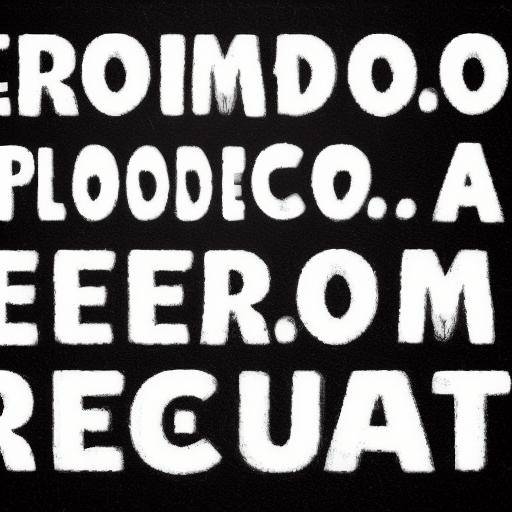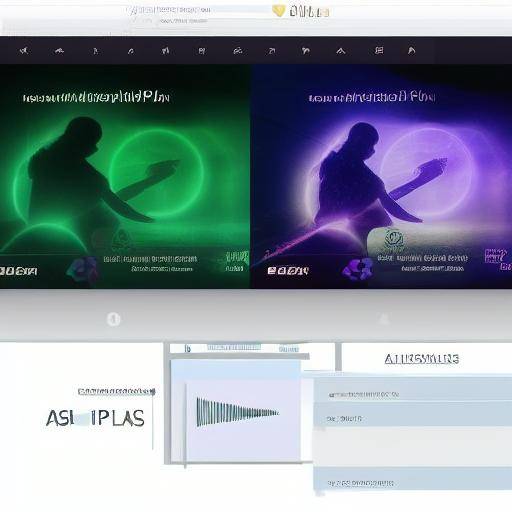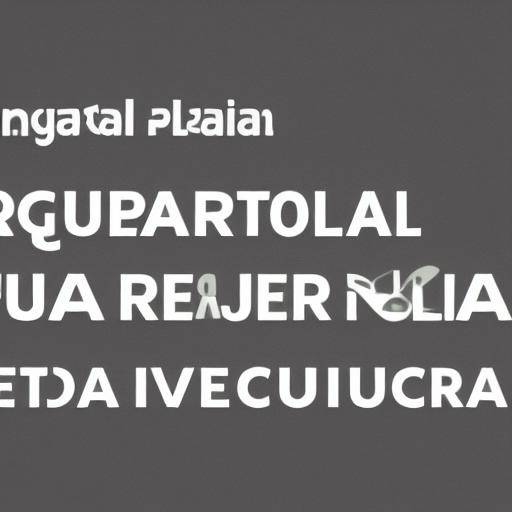
Introduction: Personal Commitment and Plan of Action
It is undeniable that personal commitment plays a key role in the successful implementation of any action plan, whether at the individual, professional or business level. The commitment, understood as the action to commit and take responsibility for meeting a particular objective, is crucial to maintaining the necessary approach, discipline and motivation to achieve specific goals. In this article, we will explore the relevance and impact of personal commitment on the implementation of an action plan, as well as its close relationship with responsibility. We will also discuss strategies, practical advice and future trends in relation to these key concepts.
Personal commitment: The impulse behind the action
Personal commitment is the driving force of action. It is the internal force that drives us to take responsibility for our goals, priorities and obligations. When we commit ourselves personally to an action plan, we are mentally committed to doing everything in our hands to accomplish it. This implies dedicating time, effort and resources, and keeping us focused on achieving our goals despite the obstacles that may arise in the way.
This personal commitment can be manifested in a variety of ways, from clear and achievable objectives to the establishment of a detailed plan of action with deadlines and specific tasks. Consistency, self-discipline and ability to overcome potential setbacks are also key aspects of personal commitment.
Action Plan: The Guide to Success
An action plan is an essential component in any enterprise, project or initiative. This is a detailed document describing the necessary tasks, timelines, resources required and associated responsibilities to achieve a specific objective. In developing an action plan, a clear working framework is established that guides the implementation of strategies and the allocation of resources, which is essential to achieving success. A well-structured action plan provides direction, coherence and focus, while facilitating follow-up to progress and evaluation of results.
By combining personal commitment to a solid action plan, an enabling environment for achieving goals is created. The commitment promotes the implementation of the tasks defined in the action plan, while the action plan provides the necessary structure and roadmap to guide efforts towards meeting the stated objectives.
Responsibility: The pillar of commitment and action
Responsibility is an intrinsic component to personal commitment and action plan. It implies taking ownership of our decisions, actions and results, accepting the consequences, whether positive or negative. Responsibility also entails fulfilling the commitments made, honouring the agreements established and assuming the consequences of our actions.
When combined personal commitment and action plan, responsibility becomes the glue that keeps these elements together. The ability to be responsible for meeting the commitments made, to perform the tasks defined in the action plan and to assume responsibility for the results achieved is essential for success.
Strategies for strengthening personal commitment and implementation of the action plan
Set realistic and motivating goals
The first step in strengthening personal commitment and implementation of an action plan is to establish clear, specific and attainable goals. These goals must be meaningful and motivating, which will contribute to maintaining commitment over time.
Design a detailed action plan
A detailed and well-structured action plan will serve as an effective guide to the implementation of tasks and the implementation of specific activities. Setting clear milestones and deadlines will help maintain focus and productivity.
Cultivate self-discipline and perseverance
The constancy, self-discipline and ability to overcome obstacles are essential qualities that reinforce personal commitment and implementation of the plan of action. Cultivating habits that foster self-discipline and sustain motivation despite the challenges is essential to achieving success.
Creating an environment of responsibility
Establishing an environment that fosters mutual responsibility and support among team members or partners will enhance individual and collective commitment. Transparency and open communication are key aspects of maintaining high levels of responsibility.
Assess and adapt the action plan as necessary
Flexibility is crucial in the implementation of an action plan. It is important to be willing to adapt the plan according to changing circumstances and to learn from the challenges overcome to continually improve the strategy.
The importance of continuing education and learning
Personal commitment and effective implementation of the action plan are reinforced by the development of relevant skills and the acquisition of up-to-date knowledge. Continuous education and constant learning provide the tools and perspectives necessary to face challenges, make informed decisions and maximize the potential for success.
The relationship between personal commitment, action plan and responsibility
Personal commitment, action plan and responsibility are intrinsically interconnected. The commitment promotes the active implementation of the action plan, while responsibility ensures that commitments are fulfilled and the results assessed in a responsible manner. These three elements operate in a synergistic manner to advance the achievement of goals and objectives in any context.
Conclusion
In short, personal commitment, action plan and responsibility are fundamental pillars that support the achievement of goals and objectives. Strengthening personal commitment, designing solid action plans and taking responsibility for results are transformers for success in any company, project or personal aspiration. In understanding the importance and interrelationship of these aspects, it is possible to achieve higher levels of effectiveness and compliance. Ultimately, the combination of a solid commitment, a well-executed plan of action and the assumption of individual and collective responsibility leads to exceptional results.
Frequently asked questions
1. How can I strengthen my personal commitment in the implementation of an action plan?
Personal commitment can be strengthened by establishing clear and meaningful goals, designing a detailed action plan, cultivating self-discipline and perseverance, creating an environment of responsibility and maintaining an attitude of constant learning.
2. What is the role of responsibility in the implementation of an action plan?
Responsibility plays a crucial role in ensuring that the commitments made in an action plan are fulfilled responsibly, assuming the consequences of the actions and evaluating the results in a transparent and honest manner.
3. How can I maintain the approach in the implementation of a long-term action plan?
To maintain the long-term approach, it is essential to have significant and motivating goals, to maintain a detailed action plan, to cultivate self-discipline and perseverance, to create an environment of responsibility and to seek opportunities for continuous learning.
4. What is the importance of continuing education in the context of personal commitment and implementation of the plan of action?
Continuous education and constant learning provide the tools and perspectives necessary to face challenges, make informed decisions and maximize the potential for success by strengthening personal commitment and effective implementation of the action plan.
5. How can I foster mutual responsibility in a working team?
Mutual responsibility in a working team can be fostered through transparency, open communication, clear expectations and recognition of individual and collective achievements.
6. What is the impact of responsibility on building a trusted and collaborative environment?
Responsibility for building a trusted and collaborative environment is significant, as it promotes transparency, commitment to common objectives, recognition of achievements and the assumption of individual responsibility for the well-being of the team as a whole.
Conclusion
In short, the importance of personal commitment to the implementation of the action plan is crucial to achieving success in any enterprise, project or personal aspiration. By combining personal commitment to a solid action plan and the promotion of individual and collective responsibility, a conducive context for achieving goals and objectives is created. Maintaining focus, discipline and flexibility, and seeking opportunities for continuous learning, are essential practices for strengthening commitment and ensuring the effective implementation of the action plan.


















